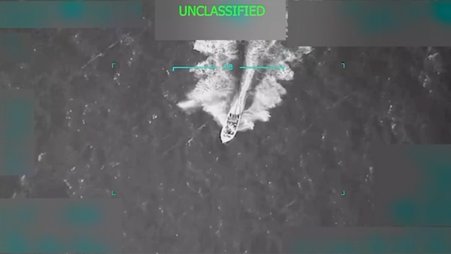ABC has settled a defamation lawsuit with President-elect Donald Trump, agreeing to pay $15 million for the establishment of Trump’s “presidential foundation and museum.”
Many report the money will go toward Trump’s presidential library, where the public will ostensibly be able to study his administration.
This would be a silver lining of Trump’s attacks on the press — especially if a portion of the settlement pays for Scotch tape so government librarians can patch up the records Trump is so fond of shredding.
But it’s not technically true.
The ABC settlement doesn’t mention a library. All it says is a Trump presidential foundation will establish something similar to what previous presidents have built.
That would be massive campuses with private office spaces, museums that have been criticized for misrepresenting history, and sometimes (although not always) government-run libraries that struggle to provide access to presidential records.
And they’ve been built with money that can come from anonymous donors, including from sources that might be eager to avoid normal campaign disclosure requirements.
The problems are so bad that presidential library experts have called the foundation-library system a scam and warned it is at a breaking point.
Why is the presidential foundation-library relationship so murky?
Congress appropriates very little money to the National Archives and Records Administration to build presidential libraries for the public to conduct research and access presidential records. As a result, NARA is dependent on the fundraising efforts of private presidential foundations to build them.
NARA takes control of the libraries once they are built, but they are often part of larger facilities, making it hard to know where the government’s work starts and private foundation work begins.
For example, the Ronald Reagan Presidential Library is just a part of a 250,000-square-foot complex that also houses the Boeing 707 that served as Air Force One, a banquet hall that can seat 1,600, and a reassembled Irish pub that Reagan had visited in the 1980s.
But presidential foundations don’t have to build government-run libraries on their campuses at all, even if it’s been a tradition.
President Barack Obama’s $700 million center doesn’t have a NARA presence, which may make it harder for historians to study the Obama administration. And Trump could follow suit.
Where does the foundation money come from?
Fundraising for presidential complexes is big business, but there are few rules or donation disclosure requirements for these facilities, whether they include government-run libraries or not.
This raises concerns about conflicts of interest from donors who want to win favor with current or former presidents, their family members who may still be in politics, or other elements of the government.
It’s not an abstract concern.
GOP lobbyist Stephen Payne promised foreign entities access to the George W. Bush administration in exchange for six-figure donations to its presidential center.
President Bill Clinton pardoned Marc Rich, a commodities trader who had been indicted on racketeering and other charges, around the same time that Rich’s ex-wife promised to donate nearly a half-million dollars to the 17-acre Clinton facility.
Other governments are also frequent donors. The Saudi royal family has reportedly donated nearly $10 million to both the Clinton and George H.W. Bush complexes.
Are the museums any good?
They can be. But the extent to which they accurately depict history largely depends on the integrity of the presidential foundation that builds it.
The Nixon museum, for instance, had a Watergate exhibit that baselessly accused Washington Post reporters Bob Woodward and Carl Bernstein of “‘offering bribes’ to further their famous coverage.” The inaccurate exhibit was on display for 17 years.
The George W. Bush Library faced criticism for not accurately addressing the administration’s use of torture.
The Clinton museum barely mentions the Monica Lewinsky scandal.
How about the libraries?
The NARA-run libraries that do get built struggle to provide public access to historical records.
Experts at the nonprofit National Security Archive (where I used to work) have repeatedly testified that the presidential libraries themselves are underfunded, understaffed, and on the verge of collapse.
Case in point: It is currently suing the George W. Bush Library for a 12-year wait on a single declassification request. And NARA’s own estimates state it will take over 100 years to make all of the Reagan White House documents publicly available.
Congress should help
Clearly, the current relationship between presidential foundations and libraries doesn’t work.
It is confusing, rife with corruption and bias, and doesn’t help the public access the most important records in government — those from the Oval Office.
Congress should keep working to pass legislation that reforms donations to presidential foundations. And it should seriously consider alternatives to the current foundation-library system to ensure presidents, including Trump, don’t pass private foundation work off as a public service.





